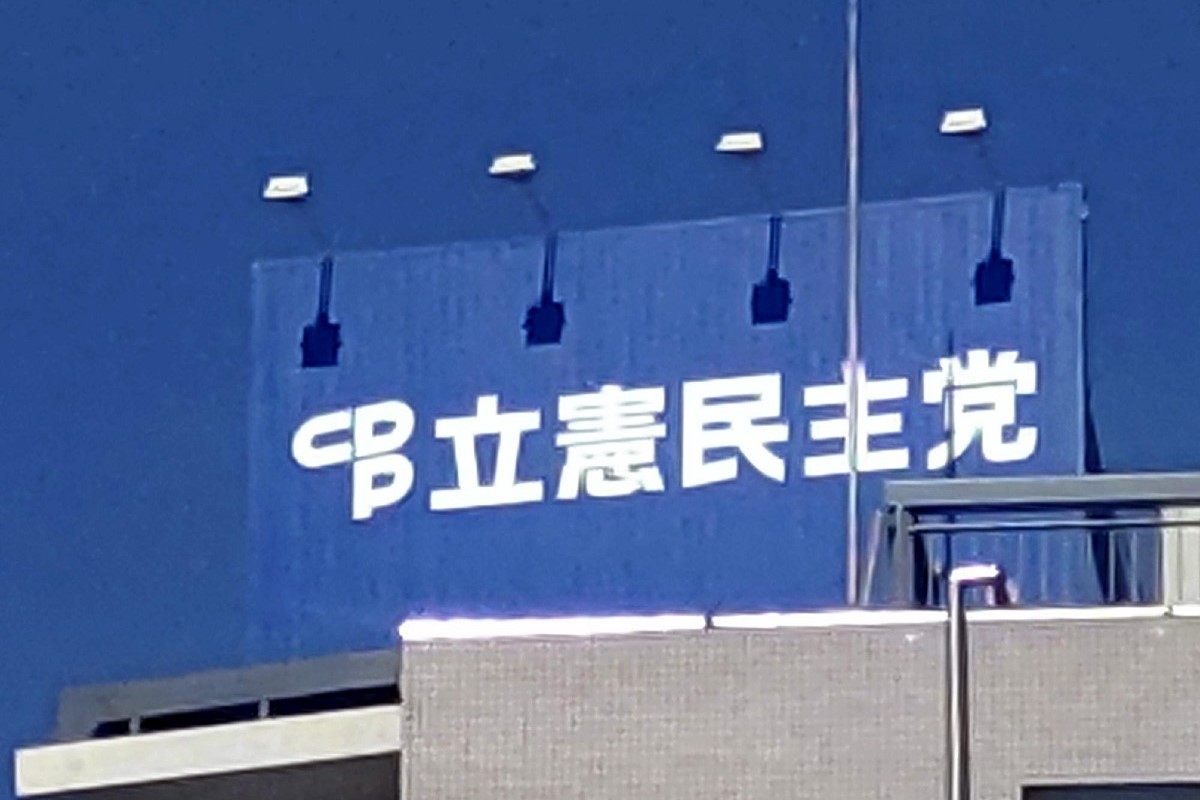Japan Opposition Party CDPJ Struggling to Make Its Presence Felt; Faces Difficulties in Joining Forces With Other Parties

The Constitutional Democratic Party of Japan’s headquarters building in Tokyo
2:00 JST, November 4, 2024
The Constitutional Democratic Party of Japan, which drastically increased its number of seats in the recent House of Representatives election, is facing difficulties to make its presence felt.
While the Democratic Party for the People is drawing attention as a party that could hold a decisive vote, the CDPJ has so far failed to take the lead in uniting non-ruling party forces due to differences in basic policies, and it has been unable to gather momentum to replace the government.
At a news conference on Friday, Yoshihiko Noda, the leader of the CDPJ, expressed his resolve to strengthen collaboration among opposition parties.
“If opposition parties join forces, it would lead to dynamic movement,” he said. “We’d like to find common ground [with other parties] one after another.”
Noda is making increasingly active approaches to other opposition parties. On Wednesday, Noda separately met Japan Innovation Party leader Nobuyuki Baba and Japanese Communist Party Chairperson Tomoko Tamura, and sought their cooperation. He is planning to meet DPFP leader Yuichiro Tamaki on Tuesday.
While the ruling coalition failed to maintain a majority in the lower house, the CDPJ is seeking to unite opposition forces around the principle of realizing political reform in response to the political fundraising scandal involving the ruling Liberal Democratic Party, in an effort to pave the way for a change of government.
However, it remains uncertain whether the CDPJ will be able to get support from other opposition parties in the vote to elect the prime minister at the next special Diet session, among other issues.
The JIP and the DPFP have not changed their cautious stance on joining forces with the CDPJ, saying agreement on basic policies is a prerequisite for them to cooperate, with issues such as energy and the Constitution in mind. Therefore, the CDPJ is struggling to secure a majority to realize its plans.
In contrast, the DPFP is increasingly making its presence felt. Therefore, there is growing concern in the CDPJ that the party may be forgotten about behind the DPFP, as one senior member put it.
At a news conference on Friday, Noda touched on the so-called “wall of ¥1.3 million,” or the income threshold for paying social insurance premiums. He said that the ¥1.3 million threshold has a “more serious impact” on people’s after-tax income, apparently in reference to the DPFP’s call to raise the income tax threshold from ¥1.03 million to ¥1.78 million. Noda’s statement indicated his strong rivalry with the DPFP.
In the latest lower house election, the CDPJ managed to drastically increase its number of seats in single-seat constituencies. But it garnered only 70,000 more votes in the proportional representation system in comparison to the previous lower house election in 2021.
“[The election result] does not mean [the CDPJ] has gained strength. It’s not time for acting triumphant,” Noda said. The party is now facing the urgent task of increasing the party’s strength and accelerating preparations to field candidates ahead of the House of Councillors election next summer.
Another issue is the party’s stance regarding the JCP, which is willing to cooperate with the CDPJ in the vote to elect the prime minister. But if the CDPJ deepens its collaboration with the JCP, it may put to question the middle-of-the-road line Noda is touting.
Some party members expressed concern to this effect. “The party may once again be ridiculed as ‘Rikken-Kyosanto’ (constitutional communist party),” said one veteran member.
Top Articles in Politics
-

Japan PM Takaichi’s Cabinet Resigns en Masse
-

Sanae Takaichi Elected Prime Minister of Japan; Keeps All Cabinet Appointees from Previous Term
-

Japan’s Govt to Submit Road Map for Growth Strategy in March, PM Takaichi to Announce in Upcoming Policy Speech
-

LDP Wins Historic Landslide Victory
-

LDP Wins Landslide Victory, Secures Single-party Majority; Ruling Coalition with JIP Poised to Secure Over 300 seats (UPDATE 1)
JN ACCESS RANKING
-

Producer Behind Pop Group XG Arrested for Cocaine Possession
-

Japan PM Takaichi’s Cabinet Resigns en Masse
-

Japan Institute to Use Domestic Commercial Optical Lattice Clock to Set Japan Standard Time
-

Man Infected with Measles Reportedly Dined at Restaurant in Tokyo Station
-

Israeli Ambassador to Japan Speaks about Japan’s Role in the Reconstruction of Gaza





















